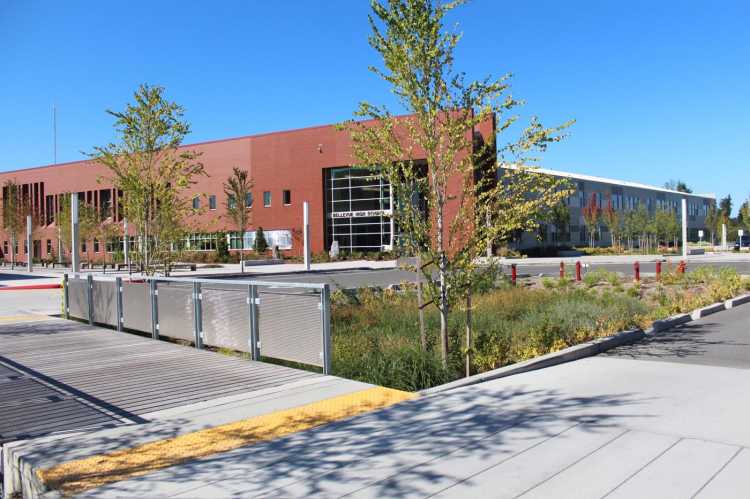Last week, Bellevue High School (located just east of Seattle) was hit with a serious sanction against its football program for widespread rules violations. KingCo Conference athletic directors imposed a four-year ban that includes suspension of the team’s booster club as well as a review of the entire program and its policies after they found a “preponderance of evidence indicating illegal recruitment of athletes, boosters paying athletes’ tuition, coaches coordinating payments to athletes and failure by BHS to self-report money provided to players’ families,” according to Stephen Cohen at the Seattle PI.
Two weeks prior to the ban, the Bellevue School District placed BHS football coach Butch Goncharoff on administrative leave. The letter penned by the District’s executive director of human services, Jeffrey J. Thomas, suggested that Goncharoff be fired after an investigation into the program concluded that he earned over $420,000 in extra compensation for “duties related to his position as head football coach.” Thomas also noted that BHS staff “developed a close relationship to alleged ‘diploma mill’ Academic Institute,” but that there wasn’t enough evidence to actually tie Goncharoff to any academic violations regarding AI.
BHS football, which has taken home 11 state titles since 2002, will also be banned from playing games against out-of-state opponents though 2019 and barred from accepting outside donations to the football program during its sanction per the Washington Interscholastic Athletic Association’s handbook as well as the under the discretion of the board, believing additional sanctions were necessary under the circumstances.
Any athletes hoping to transfer to BHS will also have to submit a residency packet that proves their families own or rent within the school’s service area (suggesting there may have been indiscretions in allowing transfers for student athletes in order for them to play on the team that did not follow WIAA guidelines).
Even though there was not enough evidence to prove a transgression involving AI, a private middle and high school also located in Bellevue that provides “customized schedules with the right mix of classes for special needs students” and “small class sizes of no more than seven students or independent on-on-one,” according to its website, it wouldn’t be the first nor last time such means have been used to keep key players academically eligible. Which, if it were the case, would be inexcusable on the part of an athletic program representing the 4th best high school in Washington State where 79 percent of its students are enrolled in the Advanced Placement® program.
If any of this is ringing a bell of alarm, it should, because it’s happening every day in high schools and colleges around the U.S. Student-athletes who compete for prestigious sports programs are often subject to pressures that other student-athletes are not – namely, getting recruited to a college or university with a prestigious program (for high schoolers) or making it to the major leagues (for collegians). What gets lost in all of these concerns? An education and guidance from the adults running these programs. Unless you’ve been living under a rock, the University of North Carolina at Chapel Hill has come under fire for one of the most publicized academic fraud cases in NCAA history.
Though we could dissect the finer points of brain development in adolescents – to which I stand by science’s determination that a human cannot achieve full cognitive maturity until the age of 25 – the fact is that kids in high school don’t know any better (even more so than college students, that is). Whatever circumstances brought them to Bellevue, whether it be their parents hoping to raise them out of a cycle of poverty, or their own desire to play for a championship-caliber team, it is ultimately the coach and director of athletic programming for that school to ensure that the rules are followed.
The school has the opportunity to appeal to the WIAA, so I’ll hesitate to speculate on any finality of the sanction. But, if the main source of the sanction is based on Goncharoff misappropriating booster funds, then find a way to sanction him and the high school administration for allowing such a thing to happen. I highly doubt that even the most miscreant high schooler had any impact on how booster funds were being allocated. And, even if academic improprieties did occur, which wouldn’t be surprising in the least bit, that still should fall on the backs of the coaches and administration that pushed for these kids to be academically eligible to play football (insert cliché inspirational high school football movie scene where a star of the team couldn’t keep his grades up and the coach tries to bully his teachers into giving him better grades).
It’s not bad enough that some of these kids are exploited for the glory of a high school football dynasty, but don’t punish them for the actions (or lack thereof) of the adults who’ve been tasked with teaching and coaching the very values they chose to bypass.
Add The Sports Daily to your Google News Feed!
